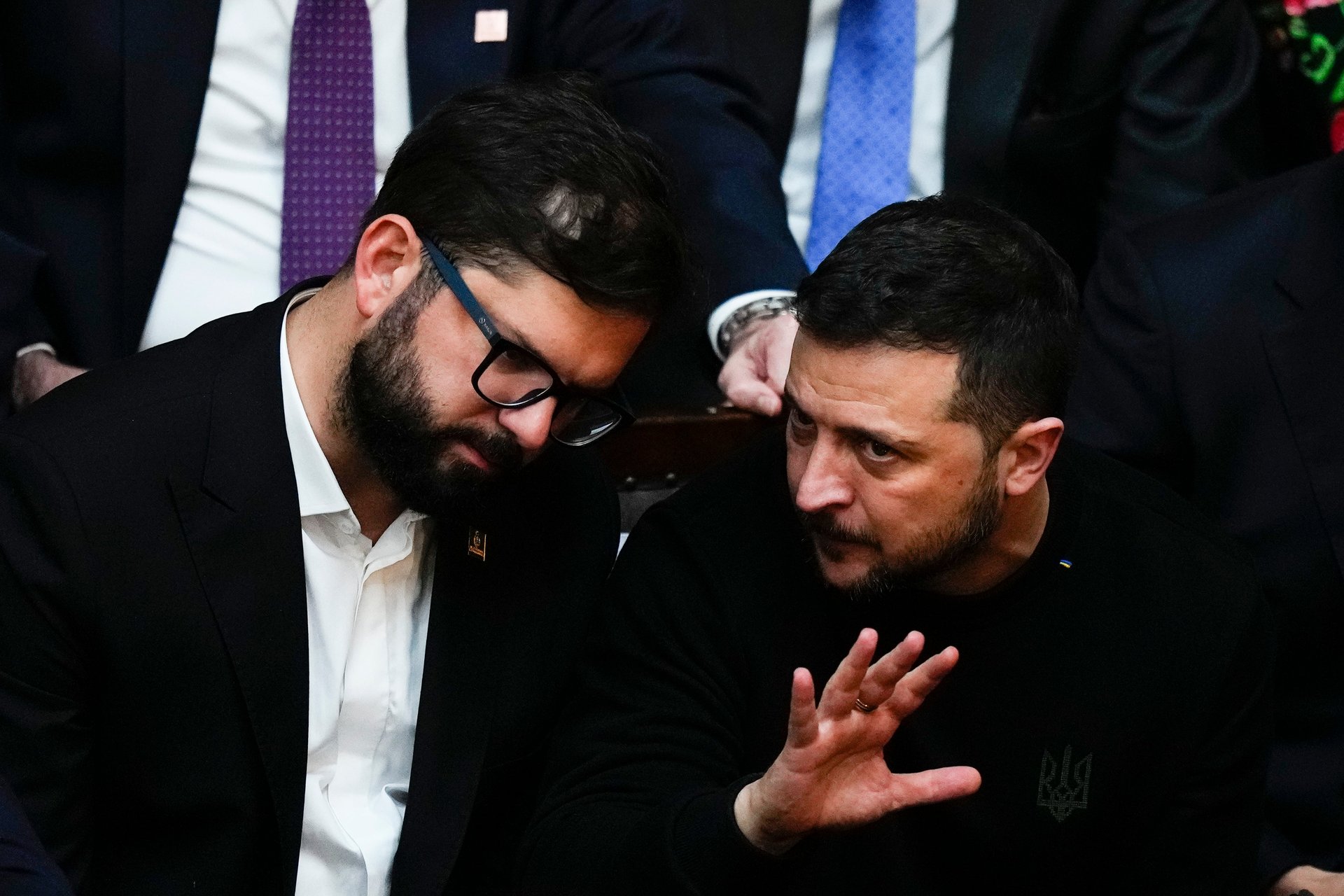Russia targets Kyiv with ballistic missiles as fears increase of attacks on energy infrastructure
A Russian missile attack on Ukraine’s capital has destroyed several homes and left more than 100 households without electricity

KYIV, Ukraine (AP) — A Russian missile attack on Ukraine’s capital early Monday destroyed several homes and left more than 100 households without electricity.
Suggested Reading
The predawn attack on Kyiv came amid warnings that Russia will step up its attacks on the country’s energy infrastructure as winter sets in with freezing temperatures.
Related Content
A series of loud explosions followed by air raid sirens broke the silence in Kyiv just after 4 a.m. as the city was under its nightly curfew.
Ukraine’s military said its air defenses intercepted all eight ballistic missiles. However, falling debris from rockets damaged homes on the ground, leaving one person wounded and three others suffering severe shock, officials said.
AP journalists witnessed some of the destruction in the district of Bortnychi on the southeastern outskirts of Kyiv. A home under construction was ripped apart and nearby buildings were partially damaged, with gaping holes in the roofs and walls.
Victor Demchenko, the owner of the destroyed house, was clearing debris from his property, next to a crater about five meters (16 feet) deep in the backyard. Demchenko said that he was in another part of the city when he heard the explosions.
“Then the neighbor called ... and said all that is left of the house is a crater,” he said. “I didn’t believe him, so I took the car and drove here. Well, you can see it yourself, there is nothing to be found here.”
At another home about two kilometers (a mile) away, Nadia Matvienko was lucky to escape uninjured when her home was damaged in the attack.
“It’s like I felt something. I couldn’t sleep all night, was turning in my bed back and forth. Then ’bang, bang,′ we rushed to the hallway. Next thing we heard is the house being torn apart,” she said, wiping away tears as she sat in her home with shattered glass and damaged furniture strewn across the floor.
The attack also left some 120 households in the city without electricity, Ukraine’s Ministry of Energy said. Ukrainian officials have warned that Russia will target energy infrastructure to cause power outages and blackouts like it did last winter.
In an intelligence update over the weekend, the U.K. Defense Ministry noted that Russia last week used its heavy bomber fleet for the first time since September. It predicted the start of a more concerted campaign aimed at degrading Ukraine’s energy infrastructure as winter sets in.
In other developments:
— The Ukrainian air force said it intercepted 18 Russian drones on Monday, mostly over the southern Mykolaiv region.
— A bottleneck for trucks at the Ukrainian-Polish border seemed to ease, at least temporarily, as Ukraine’s minister of infrastructure announced transit had been restored after being held up for more than a month by Polish truckers protesting against what they called unfair competition from Ukrainian counterparts. Waldemar Jaszczun, an organizer of the protest, confirmed to the The Associated Press that the blockade had been lifted on the road leading to the Dorohusk-Yahodyn border crossing after a decision by the local mayor. Jaszczur said that the protesters will appeal the decision.
— Ukrainian President Volodymyr Zelenskyy traveled to Washington on Monday from Argentina where he had attended the swearing-in of the country’s new president, Javier Milei. Zelenskyy was set to meet with U.S. President Joe Biden on Tuesday. Biden has asked Congress for a $110 billion ($61.4 billion) package of wartime funding for Ukraine and Israel, along with other national security priorities. But the request is caught up in a debate over U.S. immigration policy and border security.
___ Associated Press writers Karl Ritter and Hanna Arhirova in Kyiv, and Monika Scislowska in Warsaw, Poland, contributed to this report.